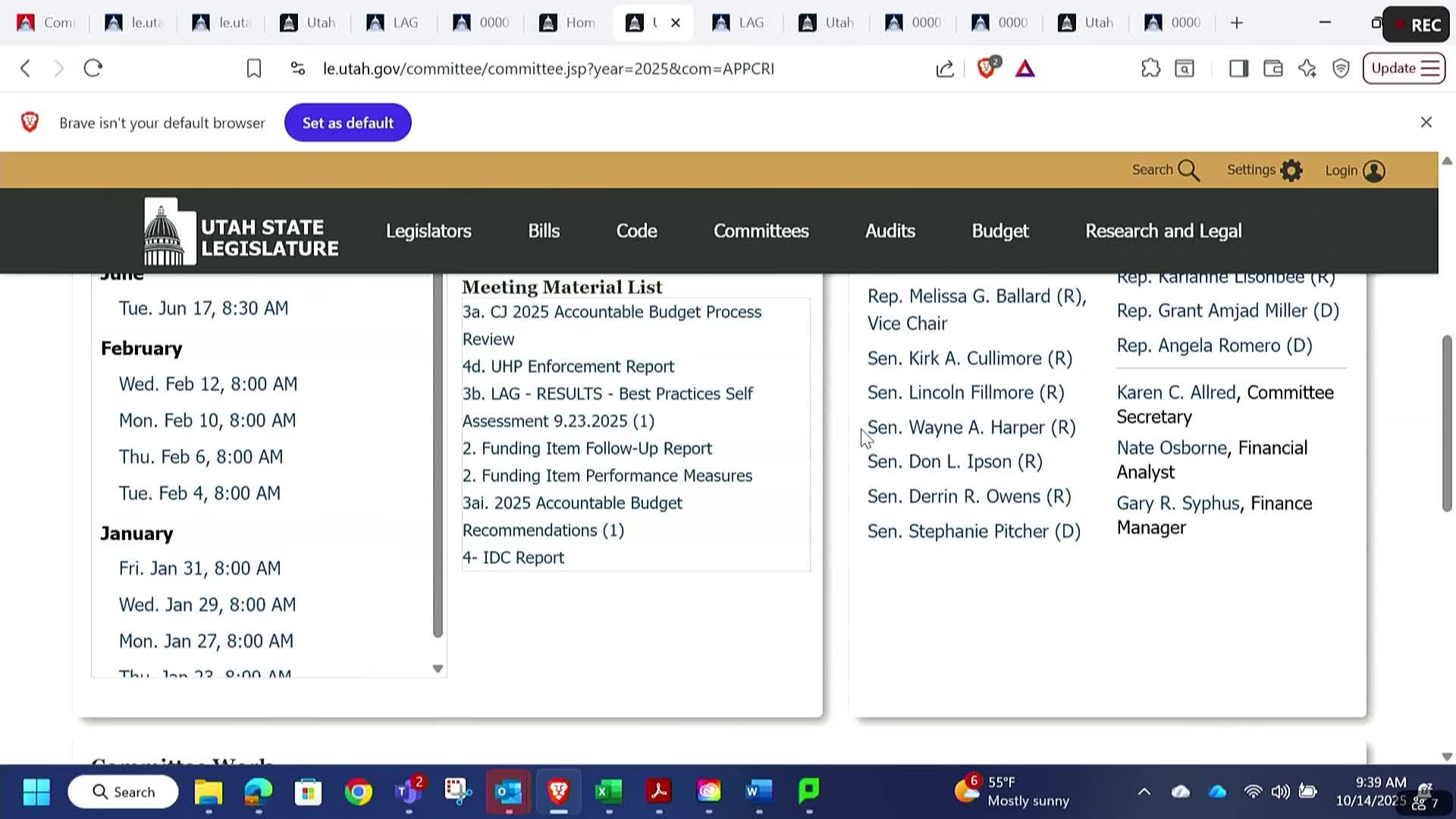Indigent Defense Commission rolls out checklists for public-defense contractors; proposes spot-check verification of indigency
Get AI-powered insights, summaries, and transcripts
Subscribe
Summary
The Indigent Defense Commission described a new checklist system to standardize representation by contract defenders and discussed models for verifying indigency, including application, universal verification and spot checks.
Matt Bridal, executive director for the Indigent Defense Commission, told the subcommittee the Commission has spent about a year developing a concise, practicable checklist for public defenders who operate as independent contractors in counties that lack full-time public defender offices. "We convened a group of managing defenders to help develop a checklist for Utah," Bridal said, describing the collaborative process with managing defenders and county offices.
Bridal said Utah's public-defense system is county-run: some counties have full-time public defender offices or contracting firms (shaded counties on a map he showed), while many counties rely on more than 150 independent-contractor attorneys who provide part-time public-defense services. That mix, he said, created challenges for consistent oversight and quality assurance. The new checklist is intended to be short, stage-based and practical so attorneys will actually use it in case work. "We wanted something quick and easy and, useful," Bridal said, and noted the checklist includes required client contact before and after hearings and links to sub-checklists with client-information items, competency flags and specialized issue prompts.
On indigency verification, Bridal summarized approaches used in other states and what would be required here. He said Utah currently determines indigency by a sworn affidavit where judges can also consider case seriousness or custody status, but Utah does not have a statewide verification system. Other states combine an application process (Colorado), universal verification via a statewide agency (Massachusetts) or random spot checks by an assigned agency. Bridal said those options require staffing and resources but could be tailored; a spot-check system would likely be the lightest lift and could use an existing statewide agency (for example, probation or a centralized administrative office) rather than relying on prosecutorial offices.
Committee members expressed support for the checklist approach and interest in using surveys (including through the Department of Corrections tablet program) to collect client feedback on representation. Representative Ballard and others also urged that any pilot or verification effort include an audit or follow-up to ensure counties comply. Bridal said a limited testing rollout is under way in three counties and the Commission will start collecting data on checklist uptake and missing items to drive training needs.
The subcommittee did not take a vote on policy changes at the meeting; Bridal and LFA staff said they would return with additional data for committee consideration.
